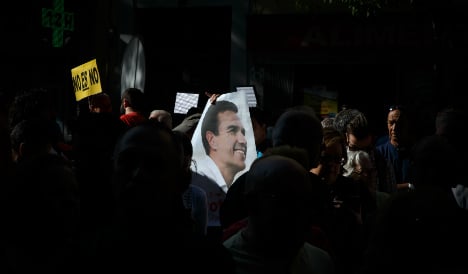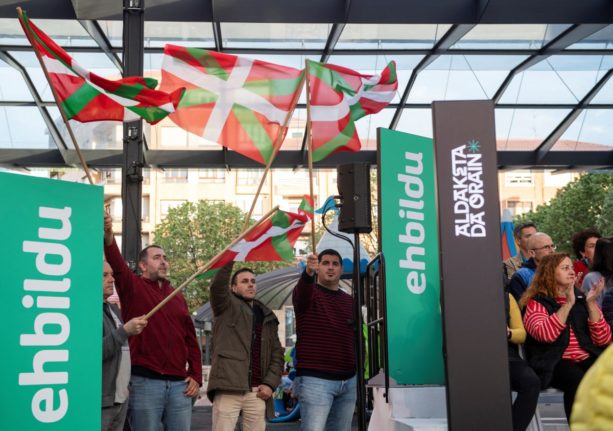Sanchez quit Saturday after high-ranking party members staged a rebellion against him for his staunch refusal to back a government under Popular Party head Mariano Rajoy.
Conservative Rajoy, who took office in 2011, has despite corruption allegations surrounding his party clung on at the head of a minority administration after two inconclusive elections in less than a year.
Sanchez has been unyielding in his refusal to have his Socialists (PSOE) back Rajoy – but that stance has divided his own party.
The dam broke Saturday after Sanchez, who had insisted that “no means no” in his rejection of Rajoy, lost a vote on the contentious issue at a tense gathering of more than 250 members of the party's federal hierarchy in Madrid.
He announced the resignation of the PSOE's federal executive committee as well as his own and promptly left the stage.
An interim executive will now take over and could direct party lawmakers to abstain in a parliamentary vote of confidence on Rajoy staying as prime minister, rather than vote against as they did last month under Sanchez's guidance.
The weekend contretemps has spilt blood on the Socialist carpet – yet now they face metaphorically having to roll out another for the PP in an attempt to end a nine-month impasse.
El Pais gave the Socialist bust-up front page treatment Sunday, depicting an exasperated, finger-wagging woman in angry exchanges with one party heavyweight.
“Pedro Sanchez resigns and leaves behind a more divided and defeated PSOE,” read the El Pais headline.
“Broken” and “devastated” were other choice media adjectives for the state of the party.
December and June elections left the PP as the largest party but without a majority as two newcomers to the political scene, the radical leftist Podemos and the liberal Ciudadanos, gnawed away chunks of the traditional parties' votes.
'Years of hegemony'
With the PP garnering 137 seats out of 350 they require the 85-strong PSOE contingent to abstain in order to form a viable administration.
If the deadlock persists beyond October 31st there will have to be yet another election in December.
Sanchez had hoped to bring together sufficient support for a leftist-led government rather than bow to another term of PP rule characterised by austerity-led fiscal policy following the economic crisis which broke in 2008.
Opponents of Sanchez took the line that the PSOE risked being seen as holding up matters and also losing votes to Podemos, who have emerged as a serious threat to the party.
Given the evident deep split in the party, political analyst Pablo Simon of Madrid's Carlos III University believes those risks reduce still further any chance PSOE might have of forming an alternative to the PP.
“There remain only two choices – abstain or else fresh elections,” said Simon.
“And after the bloodletting we have seen I think the PSOE knows that to present itself once more at the polls would be suicidal.
“Therefore, the hypothesis of abstention has hugely gained ground.”
Abstention across the PSOE the parliamentary caucus, would leave Rajoy's PP in a very strong position, not least as a substantial proportion of PSOE voters would likely abstain.
“The year started without a government and will finish with the renaissance of Senor Rajoy,” predicts Ignacio Escolar, director of leftist online daily eldiario.es.
The split in PSOE ranks “will mean years of hegemony by the Right,” one source close to Sanchez told AFP ahead of the weekend's cataclysmic events for his party.
To avoid another election the Socialists face having to back a tough budget after Brussels ordered more belt-tightening to reduce a soaring public sector deficit.
In the meantime, Javier Fernandez Fernandez, who favours abstention, will be the PSOE's interim leader with a meeting of the federal committee expected within days to decide on its position regarding the PP.
By Michaela Cancela-Kieffer / AFP





 Please whitelist us to continue reading.
Please whitelist us to continue reading.
Member comments